The U.S. Customs and Border Protection (CBP) ruling HQ H326926, issued on December 19, 2023, provides comprehensive guidelines defining what constitutes “customs business” and sets clear boundaries for the involvement of unlicensed entities, including offshore operations, in customs data entry processes. This ruling is particularly significant as it further clarifies and reinforces the legal framework surrounding customs entry and data management. Here’s a more detailed analysis of the ruling and its implications:
Key Aspects of the Ruling
1. Expansive Definition of Customs Business: The ruling defines customs business broadly, encompassing the preparation of documents or forms in any format and their electronic transmission to CBP. This definition is crucial as it underscores the wide range of activities that fall under regulated customs businese.
2. Restrictions on Unlicensed Entities: One of the core aspects of the ruling is the prohibition of unlicensed entities from engaging in customs business. This includes offshore data entry and the use of technologies like Optical Character Recognition (OCR) to read and input data from documents for customs purposes. The ruling specifies that such tasks are the prerogative of licensed customs brokers.
3. Automated Broker Interface (ABI) Access: The ruling addresses the issue of ABI access, stating that it should be restricted to customs brokers, importers, and ABI service bureaus. This is significant as it prevents unlicensed entities from accessing a critical tool used in customs processing.
4. Geographical Limitations: The ruling reiterates that customs business must be conducted within the U.S. customs territory, which includes the United States, Puerto Rico, or the District of Columbia. This point emphasizes the importance of geographical compliance in customs operations.
5. Confidentiality and Data Security: The ruling also brings to light the issue of data confidentiality and security. It implies that sharing access to sensitive customs data with unlicensed entities could breach confidentiality norms and pose security risks.
Implications and Considerations
– Operational Changes for Businesses: Companies that previously relied on offshore or unlicensed entities for customs data entry will need to reevaluate and modify their operational strategies to ensure compliance with this ruling.
– Increased Reliance on Licensed Customs Brokers: There will likely be a heightened demand for services provided by licensed customs brokers, given their now explicitly defined role in handling customs business.
– Technology and Compliance: The ruling raises questions about the role of technology, particularly OCR and other automated data processing tools, in customs business. Companies must navigate how to leverage these technologies within the framework of the ruling.
– Global Trade Impact: The ruling could have broader implications on international trade, particularly for businesses with global supply chains that rely on efficient and compliant customs processing.
– Legal and Compliance Consultation: Given the complexities and legal implications, businesses are advised to seek expert consultation to understand the specific impacts on their operations and ensure full compliance with the ruling.
Conclusion
The CBP’s ruling HQ H326926 marks a significant step in defining and regulating the scope of customs business. It underscores the importance of licensure, geographical compliance, and data security in customs operations. As the global trade landscape continues to evolve, this ruling provides a clear legal framework for businesses to align their customs-related activities, especially in data management and entry processes. The ruling also highlights the need for continuous monitoring and adaptation of compliance strategies in response to regulatory changes. For comprehensive legal advice and assistance in adapting to these regulations, businesses are encouraged to consult with legal experts in international trade and customs laws.



